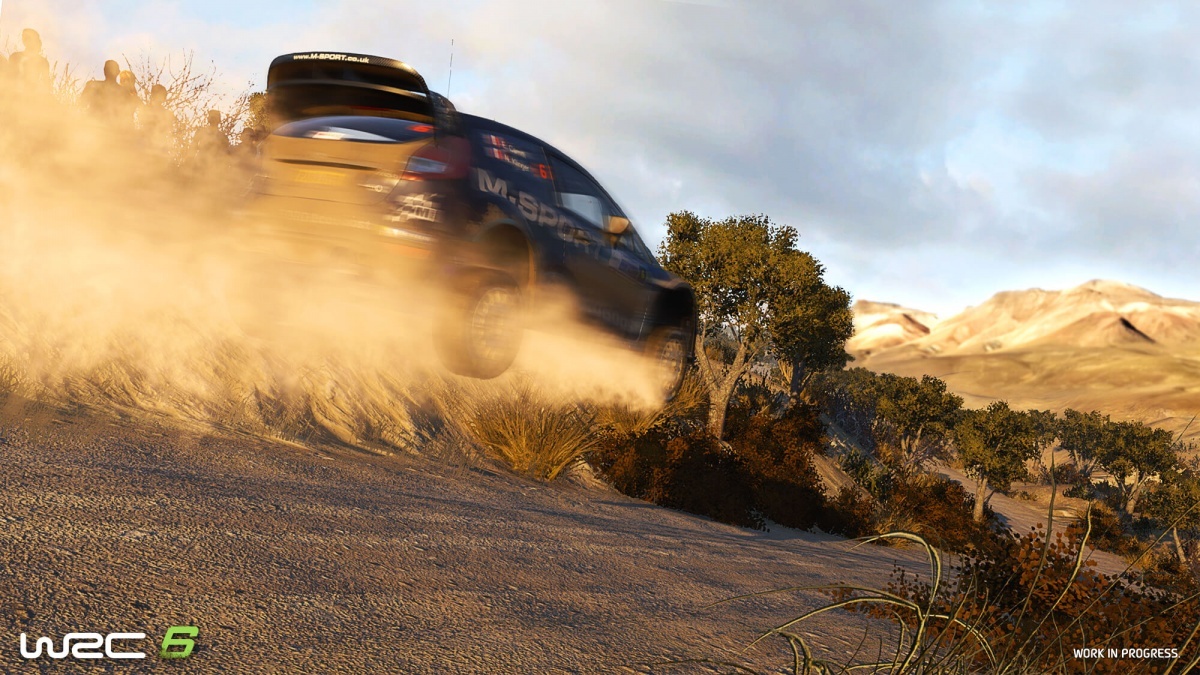WRC 6 (PlayStation 4) Review
By Tomas Barry  15.11.2016
15.11.2016

Following its debut entry in the World Rally Championship series with last year's WRC 5, French developer Kylotonn looks to build upon its experience and keep the franchise within touching distance of the likes of DiRT Rally and Sebastien Loeb Rally Evo. After the brand's overly long-winded and largely disappointing stint under Milestone, though, is the series in danger of careening into a ditch under the pressure? After Cubed3's initial coverage of the release, it is time to deliver the final verdict on WRC 6.
Under Milestone, there was always a sense that the WRC titles were being pumped out, regardless of quality, to meet publisher deadlines and be on the shelves for the holiday season. Between 2010 and 2013, each annual game hit European shelves in the month of October, without fail. With such a small actual window for development, it wasn't really a surprise that most of them were average at best, often lacking care and attention to detail, and overall feeling like a game belonging to the prior console generation. After Milestone split from the WRC brand, though, and publisher Black Bean Games lost the licence, the developer proved its point with grace through Sebastien Loeb Rally Evo. This was a game unbridled by fixed deadlines and the compromising pressure that comes with that. It turned out to be one of the best rally experiences available today, disproving many of the major accusations levelled against the WRC series it had worked on previously.

Even though the WRC publishing rights, then, now lie with Bigben Interactive, it's a shame it doesn't seem to be particularly receptive to the lessons learnt from the franchise's immediate history. There's less than a year between the release of Kylotonn's first entry, WRC 5, and its second, WRC 6, maintaining the same system as before. If ever there was a year to skip for the sake of proper improvement it would be this one, considering the extremely strong competition around. This is especially true since an official licence for a driving game has never quite carried the same weight and pulling power as licenses do in football or similar sports titles. Hence, when you objectively weigh up WRC's switch to a new developer and publisher, it all seems a little pointless if they are not planning to amend the obvious problems that have held the series back for so long.

In terms of features, WRC 6 is an adequate ride. It features the full range of 2016's courses, from fourteen countries, as well as all the expected cars from the current season. Probably its biggest strength is the quite in-depth career mode, which is an engrossing affair so long as the player is satisfied with their handling setups and difficultly levels. There's no rewind feature available, so there is a need to have a reasonable understanding of the physics involved before committing to perfect runs, otherwise those in control may find the lack of consistent progress a bit of a turn-off. It's true that the availability of different handling models does create a more forgiving and enjoyable experience for amateurs, but while in theory this should allow beginners to achieve incremental development, in practice when a physics system seems a little unpredictable and unconvincing, as it does here, surely a rewind feature would actually serve this purpose better for those starting out? Without one, it seems the result might actually be a heightened division between skill levels, offering beginners little chance of making rapid progress.

This assessment might sell the game short in some ways. It does take rallying very seriously, as it should for an officially licensed game, but it's let down by technical issues that really interfere with the intensity and authenticity of the experience. Firstly, although the visuals have admittedly improved significantly over the last iteration, the frame-rate is still hugely sub-par, which has a strange effect on the sense of speed. It's particularly noticeable when throwing the car around bends at high speeds, distorting the illusion of wrestling with its weight. At low speeds, it's equally off-putting in a slightly different way, particularly as WRC 6's courses tend to be a little narrower and claustrophobic compared to, say, DiRT Rally's made-up courses. Gamers will often believe (based on force feedback and reading the momentum like a real driver) that they have taken enough speed off before a bend, only to crash their backside into a rock because of the unnerving and somewhat ghostly frame-rate and screen-tearing.
Immersion is such a big part of the genre, but here it's broken in too many ways for WRC 6 to be considered a resounding success. The visuals still don't hold a candle to DiRT Rally (nor its silky-smooth frame-rate) and the audio is strangely bereft of small details, like gravel being kicked about under the vehicle's body. Disappointingly, the co-driver's instructions also seem a little more rigid than the more dynamic delivery seen in DiRT Rally. The result is that it's difficult to trust the timing of these instructions, especially when you can tell in the minute tone-differences that they are sequences and not contextually triggered instructions.

Cubed3 Rating
Good
The knock-on effect the game's various problems is a somewhat hollow driving experience overall. WRC 6 is valiant in terms of its content and its knowledge of rallying, and fans of the sport and of the genre will find an enjoyable package here. However, the simple reality is that this year fans are spoilt for rallying games and there are many better experiences to be had. It targets neither DiRT Rally, on the sim-side of the spectrum, nor the more all-encompassing, centre of the road experiences such as Sebastien Loeb Rally Evo. The result is a somewhat diluted rallying title with plenty of substance, but less than ideal execution. This is yet another driving series that needs to go back to its roots.
Comments
Comments are currently disabled

 Sign In
Sign In Game Details
Game Details
 Out now
Out now  Out now
Out now  Out now
Out now  Out now
Out now  Subscribe to this topic
Subscribe to this topic Features
Features





 Top
Top

